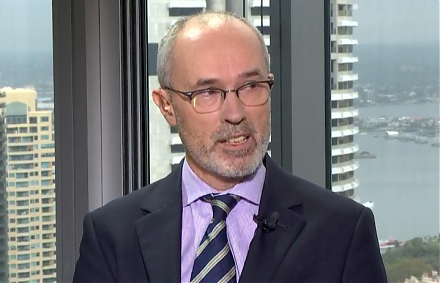

2019-11-23 08:33:00 Sat ET
technology social safety nets education infrastructure health insurance health care medical care medication vaccine social security pension deposit insurance
MIT financial economist Simon Johnson rethinks capitalism with better key market incentives. Johnson refers to the recent Business Roundtable CEO statement that focuses on better stakeholder value maximization for employees, customers, and suppliers. Johnson proposes 3 primary issues when we reconsider capitalism in response to the neoliberal consensus. First, market incentives are often positive in some contexts. It is not enough for entrepreneurs to raise capital to promote good social causes. Entrepreneurs often need to come up with a sustainable business model that promises steady future profits. Only profitable ventures survive the test of time, so founders and most senior executive managers often tend to fixate on near-term profitability.
Second, powerful policymakers and interest groups can distort sensible economic analysis to bolster the consensus view of business sustainability. It would be better for all parties to strike a delicate balance between public efforts and private motives. However, ulterior motives cannot align well with good causes.
Third, the private sector typically cannot take into account negative externalities. In this light, the public sector may need to play an important role in advancing basic science for better health care, infrastructure, technology, and so on. On balance, this consideration helps enhance macro policy outcomes in light of climate change and economic inequality.
If any of our AYA Analytica financial health memos (FHM), blog posts, ebooks, newsletters, and notifications etc, or any other form of online content curation, involves potential copyright concerns, please feel free to contact us at service@ayafintech.network so that we can remove relevant content in response to any such request within a reasonable time frame.
2019-11-26 11:30:00 Tuesday ET

AYA Analytica finbuzz podcast channel on YouTube November 2019 In this podcast, we discuss several topical issues as of November 2019: (1) The Trump adm
2017-09-19 05:34:00 Tuesday ET

Facebook, Twitter, and Google executives head before the Senate Judiciary Committee to explain the scope of Russian interference in the U.S. presidential el
2019-06-25 10:34:00 Tuesday ET

Investing in stocks is the best way for people to become self-made millionaires. A recent Gallup poll indicates that only 37% of young Americans below the a
2019-08-05 13:30:00 Monday ET

China continues to sell U.S. Treasury bonds amid Sino-U.S. trade truce uncertainty. In mid-2019, China reduces its U.S. Treasury bond positions by $20.5 bil
2020-04-17 07:23:00 Friday ET

Clayton Christensen defines and delves into the core dilemma of corporate innovation with sustainable and disruptive advances. Clayton Christensen (2000)
2017-03-03 05:39:00 Friday ET

As the biggest IPO since Alibaba in recent years, Snap Inc with its novel instant-messaging app SnapChat achieves $30 billion stock market capitalization.